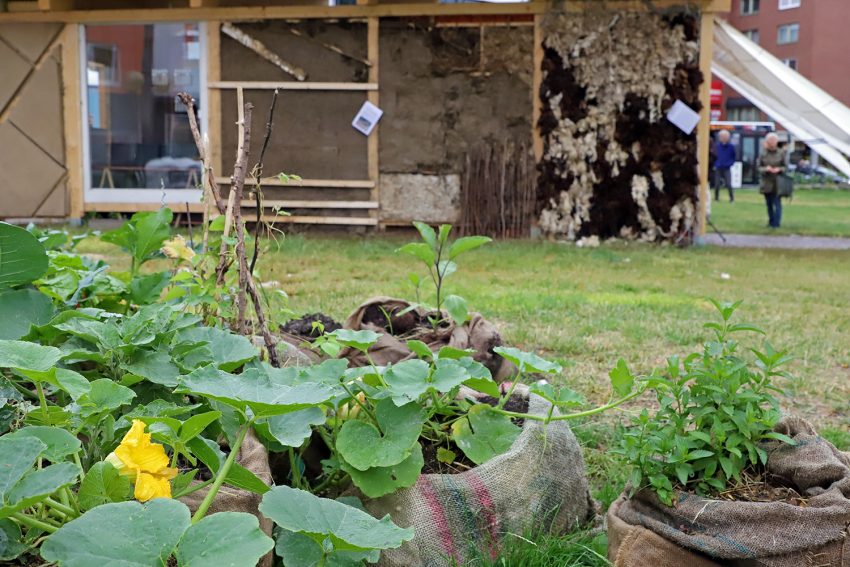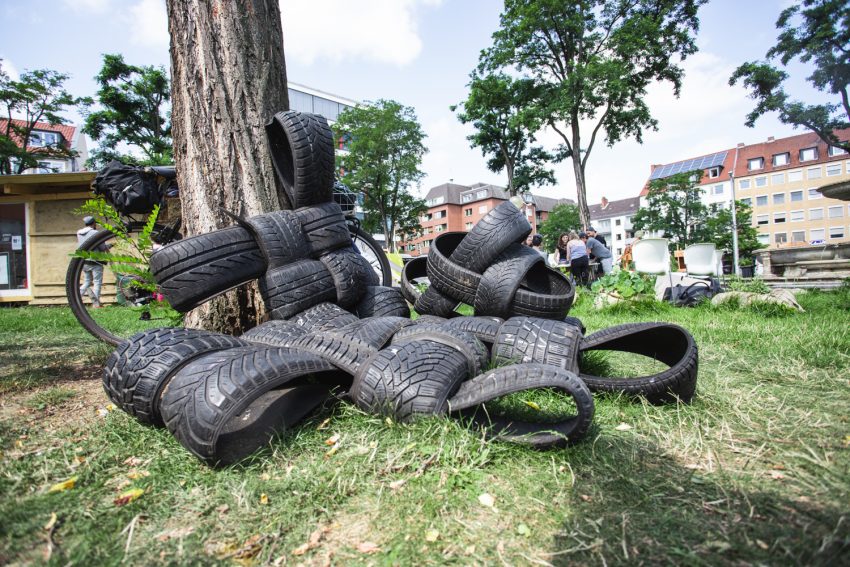Real Labs University in the Middle of the City
How do we want to live? Answering this question beyond the personal perspective is not easy. Whether it’s about energy, climate, mobility, social cohesion or digitalisation – as individuals we are overwhelmed by the task of making the right decisions. Policymakers, too, are increasingly dependent on experts to plan their measures. Scientists therefore increasingly see themselves in the role of making their knowledge available to society and providing advice.

Real laboratory: Various building and insulating materials, such as clay and raw wool, are tested on the walls of the pavilion. Picture credits: Kristina Rottig/TU Braunschweig
But even the best advice is no good if it is not understood or accepted. The more scientific findings and developments change people’s everyday lives, the more they need to be included in them.
At the TU Braunschweig, more and more researchers are therefore actively approaching citizens. This happens within multiple different formats: In nationally broadcast talk shows, as part of the TU Night, in public discussion events, in research with test subjects, or in Citizen Science projects, where citizens can participate in research themselves.
Knowlege Exchange – the reciprocal nature of exchange
Experts from the university meet other experts there, who provide information about their respective areas of interest and life and can sometimes contribute astonishing knowledge resources. In English, the term knowlege exchange is used to describe this – the German translation of the term, “Wissensaustausch”, has not established itself here yet. In contrast to “Wissenstransfer”, the English term emphasises the reciprocal nature of the exchange relationship.
A particularly intensive exchange format is the real laboratory. Here, research is not conducted in an artificial environment, but the world itself becomes the experimental field. Streets are equipped with smart traffic lights, sensors record light, fine dust or noise emissions, and students move into research apartments and observe how the infrastructure proves itself in everyday life.

A sight that also provoked: New objects were made from old car tyres in the workshop “Ringgeflecht”. Picture credits: Max Fuhrmann/TU Braunschweig
With the support of the city, scientists and architecture students have set up a large real laboratory on Braunschweig’s Hagenmarkt. They met there daily with citizens who were almost always curious, sometimes irritated, and who contributed their own perspectives. A great experiment, which we accompanied intensively in our reporting. Whether and how things will continue at the Hagenmarkt is still being discussed.
One thing is certain: This successful experiment will be followed by others across our faculties.
We have therefore set up a dossier (ger) on the topic of real labs. In dossiers, we summarize our contributions to strategically important topics of our university. We were surprised ourselves at how diverse the places of exchange and the “on-site university” already are. Take a look and take part in this fascinating kind of knowledge exchange.
